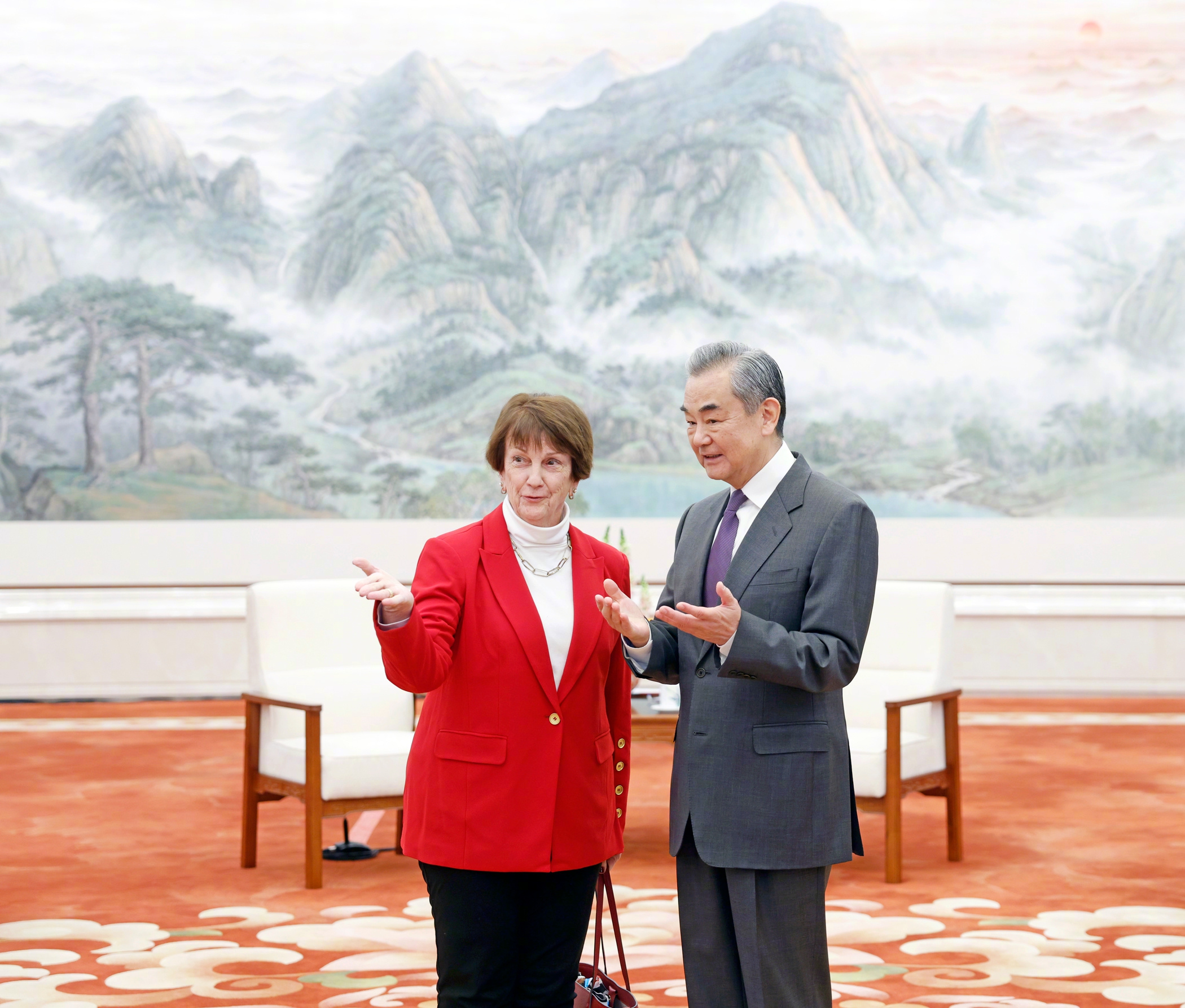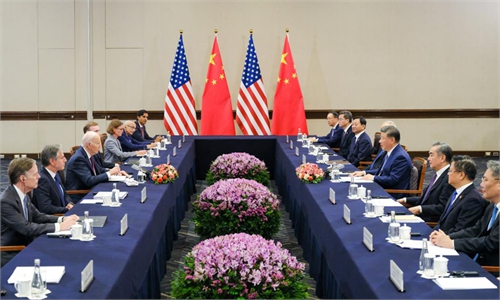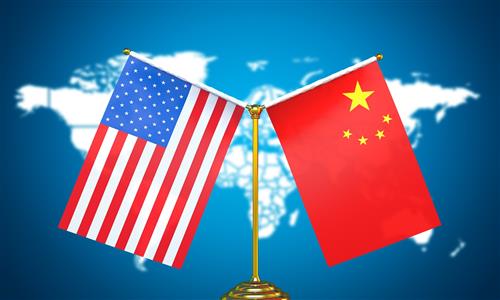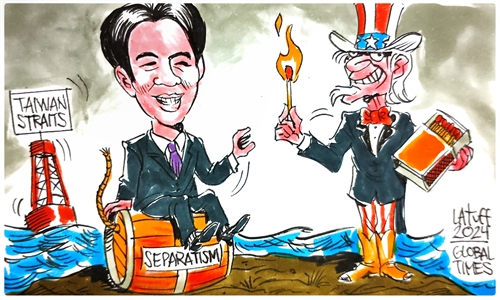Wang Yi meets with NCAFP delegation, expressing hope for US to work with China in the same direction

Chinese Foreign Minister Wang Yi, also a member of the Political Bureau of the CPC Central Committee, met in Beijing with a US delegation headed by Susan M. Elliott, President and CEO of the National Committee on American Foreign Policy (NCAFP), on December 3, 2024. Photo: MFA
Chinese Foreign Minister Wang Yi, also a member of the Political Bureau of the CPC Central Committee, met in Beijing with a US delegation headed by Susan M. Elliott, President and CEO of the National Committee on American Foreign Policy (NCAFP).
Wang said China's foreign policy, including its policy toward the US, maintains stability and continuity. This reflects the steadiness and credibility of a major country. No matter what changes within the US, China stands ready to improve and develop China-US relations based on the three principles of mutual respect, peaceful coexistence, and win-win cooperation.
These three principles are a profound summary made by President Xi Jinping after more than half a century of ups and downs in China-US relations. They align with the practical needs of the two countries, the trend of the times, and the expectations of the international community, Wang said.
In the meeting between Chinese and US leaders in Lima, President Xi insightfully listed seven experiences and inspirations that the two countries should draw from the course of their relations, stressing that China's goal of a stable, healthy and sustainable China-US relationship remains unchanged. Its commitment to mutual respect, peaceful coexistence and win-win cooperation as principles for handling China-US relations remains unchanged. Its position of resolutely safeguarding China's sovereignty, security and development interests remains unchanged. And its desire to carry forward the traditional friendship between the Chinese and American peoples remains unchanged. This is not only an authoritative explanation of China's policy toward the US, but also a vision for the future of China-US relations.
Wang said the future direction of China-US relations depends on the choices made by Washington and the joint efforts of both sides. He expressed hope the US side will work with China in the same direction.
Wang pointed out that China-US relations should remain stable. China firmly opposes arms sales to the island of Taiwan and the expansion of illegal unilateral sanctions during the transitional period. Wang urged Washington to take more actions conducive to stabilizing bilateral relations and encouraged the new administration to make a positive first move in its interactions with China.
He also emphasized the importance of maintaining accurate strategic understanding. China's development and rejuvenation are grounded in clear historical logic and robust internal momentum, making it an unstoppable trend. China has no intention of challenging or replacing Washington and has called on it to avoid the misconception of "competing to win" against China.
Wang underscored the need for communication and dialogue. While dialogue may not resolve all issues, it helps to enhance mutual understanding, reduce misjudgments, and advance cooperation. He also reiterated the critical importance of respecting bottom lines and red lines. Taiwan is a matter of China's internal affairs, and China is resolute in safeguarding its sovereignty and territorial integrity. He called on Washington to honor its commitment to the one-China policy and respect the Chinese people's choice of development path and their legitimate rights to development.
In addition, Wang stressed the value of strengthening people-to-people exchanges. China will continue to support and facilitate interactions between the two nations, welcoming more Americans from various sectors to visit and engage with China.
The US side stated that China-US relations are in a transitional phase, coinciding with a transformation in the international landscape. They emphasized that the trajectory of China-US relations will shape the future global order. The NCAFP's mission is to strengthen bilateral ties, seek consensus, and enhance mutual understanding.
The US side noted that China-US relations have often stood at critical junctures in history. During the current government transition, they expressed hope that both sides would maintain effective communication, continue strategic dialogue, and promote people-to-people exchanges. Stabilizing China-US relations is crucial for both nations and the world. NCAFP reiterated its commitment to serving as a bridge and contributing to the positive development of bilateral relations.



